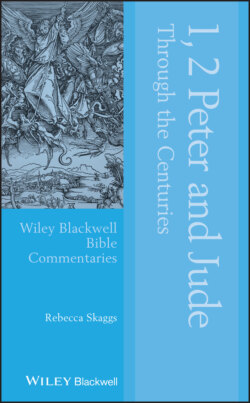Читать книгу 1, 2 Peter and Jude Through the Centuries - Rebecca Skaggs - Страница 39
Ancient Receptions
ОглавлениеOne of the issues which interests the early writers is whether the belief of the Old Testament prophets in the promises of God is as inspired as those who lived at the time of Jesus. Clement of Alexandria considered the Old Testament prophets to be foundational to understanding the New Testament work of Christ; he adds: “the prophets have inquired and searched diligently, and … [it] is declared by this that the prophets spoke with wisdom, and that the Spirit of Christ was in them, according to the possession of Christ, and in subjection to Christ” (Adumbrations: FC: ccel.org).
Oecumenius also understands the Old Testament prophecies as the work of the Spirit of Christ: “The Spirit of Christ predicted his sufferings to Isaiah (Isa. 53:7), and he predicted the resurrection to Hosea” (Hos. 6:3) (Comm. on 1 Peter, PG 119: 520: my tr.).
Andreas concurs (Catena, CEC 44). Didymus the Blind explains that at his time (fourth century) this was a debated issue, and explicitly remarks that the opinion held by many that the promises and salvation of the Old Testament prophets were inferior to those of the ones who saw Jesus in the flesh “is false.” He explains further that Christ comes in two ways. One is by the intellect as Divine Word; the other is through the senses as when he appeared on earth historically (Comm. on 1 Peter, PG 39: 1757–1758).
Theodoret of Cyr (393–458/466) agrees and states emphatically: “Peter says that whatever was announced to you through the proclamation of the Holy Spirit [through the prophets] was sent from heaven” (Catena, CEC: 45–6: my tr.). Ambrose of Milan (c. 340–397) agrees (Letters to Laymen 66: FC: ccel.org).
